Stay Safe on 30A
Summer is without a doubt one of the best seasons to experience South Walton’s natural beauty. The weather is warm, the water is a beautiful shade of emerald, the local entertainment is picking up with free outdoor concerts, and the sunsets are absolutely breathtaking during this time of year. However, with all of the summer season’s beauty comes a few safety concerns and pests that are important to be aware of during your vacation on 30A.
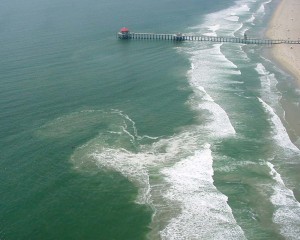
Rip Currents
A rip current is defined as a powerful channel of water moving away from the shore. With speeds of up to eight feet per second, a swimmer can easily be swept out to deeper water. In the event you are caught in a rip current, it is important to remember the following tips:
- Do not fight the current. Remain calm and swim parallel to shore until you are no longer in the rip current. Then, swim back to shore at an angle at a comfortable pace. If you are unable to swim parallel to the shore to free yourself from the current, remain calm and float or tread water until the current weakens.
- If you are able to, call out for help or bring attention to yourself by waving towards shore.
Spotting a rip current:
- Look for a channel of churning water that may appear as choppy.
- Look for an area of water where the color is different.
- Look to see if seaweed or foam is moving steadily away from shore.
- Look for a break in the waves.
If you think you have spotted a rip current, do not swim in that area of the water. If you see others swimming in the vicinity of a rip current, warn them of the dangers if possible. Most importantly, if the flag near the beach access is red, do not get in the water.
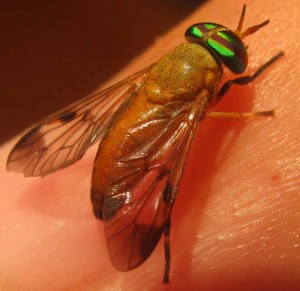
Yellow Flies
While the warmer months of the year bring beautiful weather to enjoy outside, they also bring pests that enjoy the warm temperatures. Yellow flies are a species of biting fly that typically appear from May to early July. The flies congregate in shaded areas in humid climates near water or woodlands and typically avoid open, sunny areas. While some species of yellow fly are particularly active in the morning, others are more prevalent in the early evening around dusk.
Prevention and Protection:
- Where adequate amounts of clothing to protect your skin if you are going to be in an area where yellow flies are prevalent.
- Use bug repellent to protect exposed areas of skin.
- Hang a “sticky black ball” trap in a shaded area around your home. To make your own ball, spray paint a beach ball or milk jug black and attach it to a string. Then, cover the ball in a sticky substance called Tangle-Trap. Yellow flies are drawn to the ball due to movement and become stuck to it upon landing.
Bite Treatment:
- Apply a small amount of vinegar to the bite.
- Additional treatment methods include Preparation H with aloe, cortisone cream, and Witchazel.

Snakes
South Walton is home to various species of snakes, both nonvenomous and venomous, that are active most in late spring and summer. While not all snakes are dangerous, it is important to be able to identify venomous snakes and where they can be found.
Venomous & Nonvenomous: What’s the Difference?
- Most venomous snakes (Pictured Bottom) have a broad triangular shaped head, an elliptical pupil, a heat sensing pit, fangs, and a pointed snout. Venomous snakes may also hiss, or rattle their tails in the case of a rattlesnake, and adopt a defensive position as opposed to fleeing the area.
- Nonvenomous snakes (Pictured Top) have a narrow head with a round snout, a thin body and a round pupil. They have teeth, but do not have fangs. Nonvenomous snakes typically move away from the area quickly if you stumble upon them. The exception to this description of nonvenomous snakes is the Coral Snake.
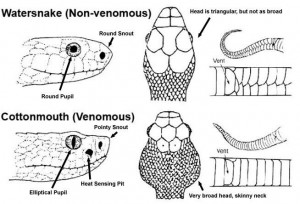
Northwest Florida is home to the following venomous snakes: Eastern Diamond-backed Rattlesnake, Pygmy Rattlesnake, Timber Rattlesnake, Copperhead, Cottonmouth or Water Moccasin, and Coral Snake.
Prevalence:
- When exploring wooded areas or lakes, creeks and rivers, it’s important to be aware of your surroundings, to listen for hisses, rustling, or rattling, and to watch your step. In the case you stumble upon a venomous snake, calmly move away from the animal as quickly as possible. Do not poke, prod, or attempt to handle a venomous snake.
- If you are bitten by a venomous snake, remain calm and seek help via emergency personnel or call 911 immediately.
We hope you enjoy your time in South Walton and that the information we’ve provided allows you to have a fun and safe summer on the Emerald Coast!
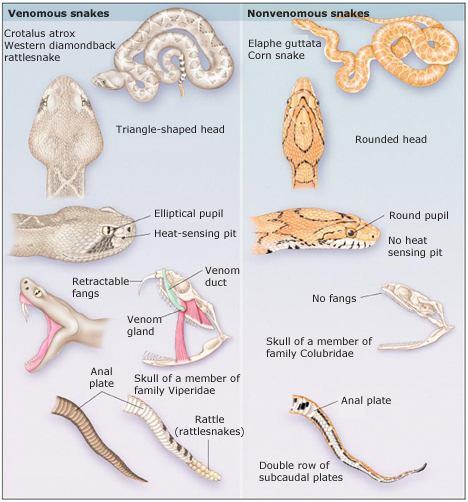
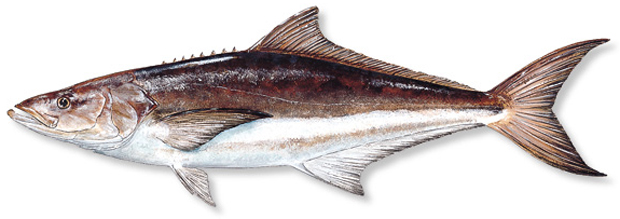
 Destin’s 18th annual Cobia fishing tournament just ended on April 30th with the leader weighing in at just under 82 pounds. This has been some of the best cobia fishing in years. Due to scheduling conflicts with Harbor Docks awards party, the awards party has been moved to Wednesday May 11th 2016 at Harry T’s 6:30pm
Destin’s 18th annual Cobia fishing tournament just ended on April 30th with the leader weighing in at just under 82 pounds. This has been some of the best cobia fishing in years. Due to scheduling conflicts with Harbor Docks awards party, the awards party has been moved to Wednesday May 11th 2016 at Harry T’s 6:30pm If you are surf fishing along Hwy 30a make sure you weigh your Pompano catch at Stinkys. Stinkys Fish camp Pompano tournament is in full swing with a registration fee of $50. The tournament runs through May 15th, 2016. There will be $2000 in cash and prizes awarded to the winners
If you are surf fishing along Hwy 30a make sure you weigh your Pompano catch at Stinkys. Stinkys Fish camp Pompano tournament is in full swing with a registration fee of $50. The tournament runs through May 15th, 2016. There will be $2000 in cash and prizes awarded to the winners

